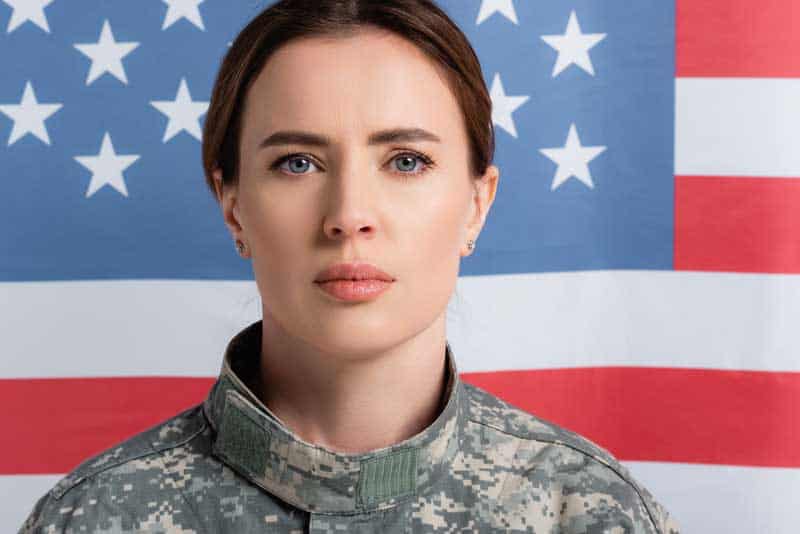Can a Divorced Spouse Collect Veteran’s Benefits?
Circumstances change for people from all walks of life, and veterans are no exception. Some veterans are no longer married to the person they were during their service, and this may cause some confusion for their former spouse regarding benefits they still have available to them. Benefits will only be adjusted once a divorce has been legally finalized, a legal separation will not alter benefits for either spouse.
Veteran’s benefit programs through the U.S. Department of Veterans Affairs (VA) are typically allocated only to the eligible veteran in case of divorce. However, there are exceptions to this rule. Some veteran’s benefits, such as health care and military identification, are still applicable to the divorced spouse if they meet certain criteria. All VA benefit programs have very specific requirements that must be met by both the veteran and their spouse. These requirements vary state by state, so be sure to research your specific state regulations regarding veterans’ benefits for divorced spouses.

Circumstances change for people from all walks of life, and veterans are no exception. Some veterans are no longer married to the person they were during their service and this may cause some confusion for their former spouse regarding benefits they still have available to them. Benefits will only be adjusted once a divorce has been legally finalized; a legal separation will not alter benefits for either spouse.
Circumstances change for people from all walks of life, and veterans are no exception. Some veterans are no longer married to the person they were during their service and this may cause some confusion for their former spouse regarding benefits they still have available to them. Benefits will only be adjusted once a divorce has been legally finalized, a legal separation will not alter benefits for either spouse.
VA Disability Compensation For A Divorced Spouse
Because disability compensation payments made to an eligible veteran are non-taxable and do not count as income, these payments are not divisible in court in the case of divorce. By law, the veteran themselves are allowed to keep the entirety of their disability compensation post-divorce and not have to allocate any of those funds to their former spouse.
The veteran can choose to have a portion of their disability compensation sent to their former spouse, although this is not required by law. Because each state has its own laws and regulations regarding veterans’ benefits, there are certain circumstances where the veteran may be required to give their former spouse a portion of their VA benefits.
One of the most common scenarios that can result in having a veteran’s benefits legally appropriated to their former spouse is owing money for child support. If a veteran refuses to pay their former spouse child support even when the courts have decided it is completely necessary, they may be required to pay a portion of their disability compensation in place of child support. The amount that will be allocated to the former spouse differs between situations and states.
Health Benefits
When deciding whether or not an ex-spouse is eligible to continue receiving health care benefits through the VA, the VA operates using the 20/20/20 rule. This rule is in relation to the amount of time the couple was married in relation to their service along with the amount of time the veteran spent in active duty. In order for divorced spouses to continue receiving health benefits, they must have been married to the veteran for at least 20 years. The veteran also must have spent at least 20 years in their respective branch of the U.S. Military. The last 20 of the 20/20/20 rule requires the marriage to have overlapped the veteran’s military service by at least 20 years.
Even if the former spouse meets the 20/20/20 rule, they must also remain unmarried and not have access to a health care option offered by their employer. Once a former spouse has been confirmed to have met the 20/20/20 rule, they will continue receiving their normal health care coverage post-divorce. If the marriage only overlapped with the veteran’s military service by 15 years (20/20/15), the former spouse may only receive one year of health care coverage through the TRICARE program.
Military Identification
The 20/20/20 rule is used here again to determine if a spouse can retain their military identification after a divorce. If a former spouse meets all of the requirements for the 20/20/20 rule, they will be allowed to keep their military identification for whatever purposes they desire. Military identification is required before being allowed on any military bases or being granted access to services on base.
Many people choose to shop at the commissary located on base to avoid taxes and pay lower prices for basic goods, so this access requires military identification. People who have a military ID may also be eligible to receive discounts for goods or services at various locations all over the country. As long as a former spouse is granted access to their military identification, they will continue receiving these benefits.
Military Pension
A military pension is often the most lucrative veterans’ benefits offered by the VA. Because a military pension can amount to a large sum of money, this is seen as a marital asset by the courts. The amount a veteran earns per month through their military pension may be divided at the time of divorce.
Military pension division is not decided upon the 20/20/20 rule and will almost always be split between both parties despite the amount of time spent married. The split, however, will not always be a clean 50/50 split. The amount of money owed to the former spouse will take the veteran’s service details into consideration including the amount of time served, basic pay, and their retirement multiplier.
The Defense Finance Accounting Service (DFAS) will pay the allocated percentage of the veteran’s pension directly to the former spouse as long as the couple was married for at least 10 years. If they were not married for at least ten years, the veteran will be required to make monthly payments to their former spouse until the agreed-upon sum has been paid.
Free Legal Assistance
When all else fails and it’s time to file for divorce, circumstances may arise where parties cannot come to an agreement and the situation requires help from a legal advisor. Divorce attorneys can cost an arm and a leg, in some cases, further adding to the stress of the divorce process. This is where the military comes in.
Spouses of veterans may be eligible to receive free divorce assistance and legal representation when the case is brought in front of a judge. Law offices can be found on most military bases and should be taken advantage of when the time comes. It’s important to note, however, free legal assistance is not available to veterans. Only dependents and spouses of the veteran may receive free legal assistance during a divorce trial.
Having a divorce attorney help with your case can result in a more unified outcome than going through the divorce process alone. Many cases, such as those deciding custody for children, require an attorney regardless of how well the couple works together to come up with solutions and compromises.
Divorce: There Are Still Benefits Available
Divorce can be a tricky time for families, so losing benefits should the least of your worries. The VA strives to provide veterans, their dependents, and their former spouses with fair treatment and fair allocation of monetary benefits. Although many veteran benefits programs are intended to assist the veteran solely, there are many options available to spouses and former spouses.
Each state has its own rules regarding veterans’ benefits, so be sure to contact your local VA office for the most accurate information regarding your situation. Applying for benefits can be done directly through the U.S. Department of Veterans Affairs website, in person at one of the many VA offices, or through the mail. Many benefits are determined in the order the application has been received, resulting in a substantial delay when filing through the mail.
Save Money on Your Wireless Phone Service
If this article about veteran’s benefits for divorced spouses was helpful, you may qualify for free wireless service through the federal Lifeline program. You can check your eligibility now by clicking here.



